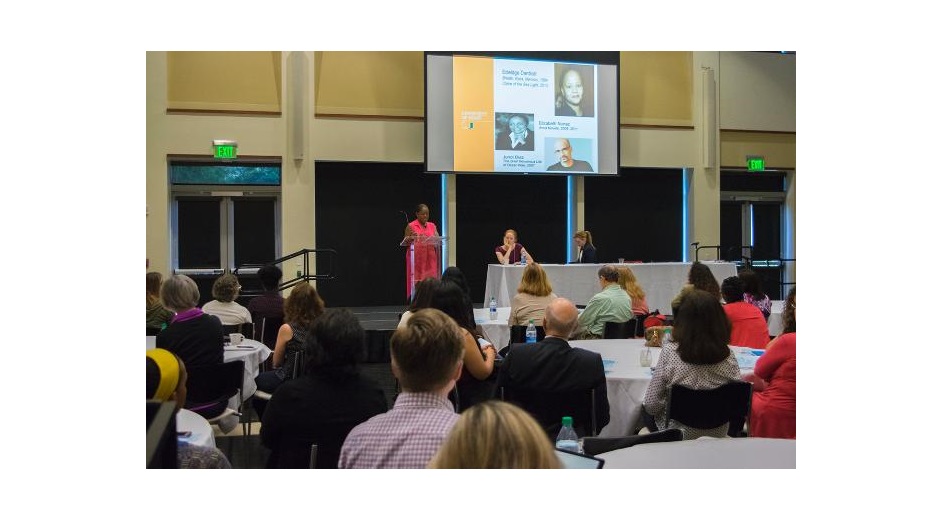Nearly 100 professors, researchers, medical and health professionals, and students attended the University of Miami’s first Medical Humanities Summer Institute last week, which included keynote speakers and panel discussions with UM faculty and scholars from Princeton University, Harvard Medical School, Duke University, New York University School of Medicine, and University of Michigan.
“Bringing together such a diverse and engaged audience to discuss topics of pressing and mutual interest for doctors, nurses, and patients alike fulfills an important goal of the Center for the Humanities to build bridges between the humanities and the sciences, including medicine," said Mihoko Suzuki, director of the UM Center for Humanities, which co-sponsored the event.
In his opening remarks, Leonidas G. Bachas, dean of the College of Arts and Sciences, called medical humanities “central to what we do.”
“Humanities and the arts are an important aspect of the education of our students and of society,” he said. Bachas also discussed the College’s aim to integrate the humanities within its academic programming, exemplified in the lectures and events hosted by the Center for the Humanities and the College’s Medical Humanities minor, an interdisciplinary curriculum that introduces students to the practice and science of medicine from the perspective of the humanities.
 |
| College of Arts & Sciences Dean Leonidas G. Bachas |
Catherine Newell, the Medical Humanities program advisor and an assistant professor in the Department of Religious Studies, noted that the Medical Humanities minor as well as the Social Science and Medicine minor provide excellent interdisciplinary opportunities for students on a pre-med, pre-nursing or health care track.
“The two days presented a wonderful balance between research on public health and global medicine with the importance of engaging students and the medical community in a humanities-based perspective,” she said.
Day one of the Institute focused on medical humanities and global health with keynote lectures on "critical global health" by João Biehl, professor of anthropology and co-director of the Program in Global Health Policy at Princeton University, and on "global health history," by David S. Jones, the A. Bernard Ackerman Professor of the Culture of Medicine at Harvard.
In addition, panels featuring both UM faculty and faculty from other institutions, including Duke University, centered on the topics of women’s reproductive health in the Caribbean, and art, health, and medicine in Haiti.
Day two of the Institute centered on the topic of medical professionals and the humanities with keynote lectures on "art and medicine" by Joel Howell, the Victor Vaughan Collegiate Professor of the History of Medicine at the University of Michigan, and on the relationship between the caregiver and patient by Danielle Ofri, associate professor at the New York University School of Medicine.
Panel discussions addressed questions concerning the importance of the humanities in medical education and practice, as well as effective teaching methods within the medical humanities academic curriculum.
Welcoming the initiative, UM President Julio Frenk noted that, at his inauguration he spoke about the need to bridge the disciplinary silos that very often dominate work in academia. “The problem is not in the disciplines, but the absence of mechanisms for interdisciplinary dialogue, inquiry, and research programs,” he said. “The Medical Humanities Summer Institute is actually a great example of that idea.”
 |
|
University of Miami President Julio Frenk
|
In addition to UM’s Center for Humanities, the Institute was presented with support from UM’s Office of the President and Provost; Miller School of Medicine Institute for Bioethics and Health Policy; College of Arts and Sciences; Institute for the Advanced Study of the Americas; and Graduate School, and the Consortium of Humanities Centers and Institutes.
May 24, 2017

